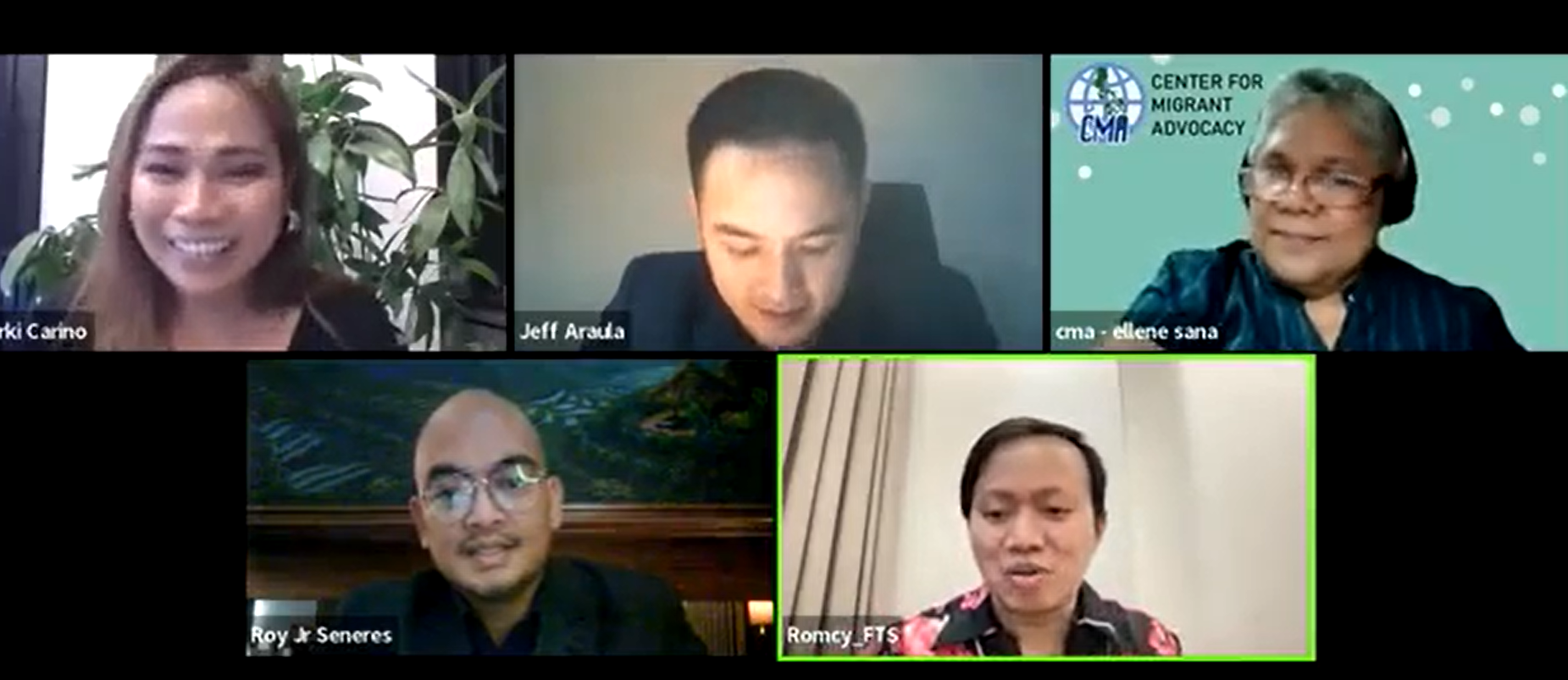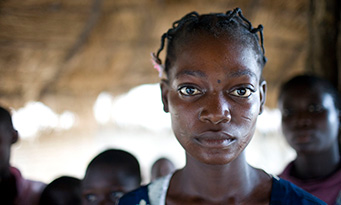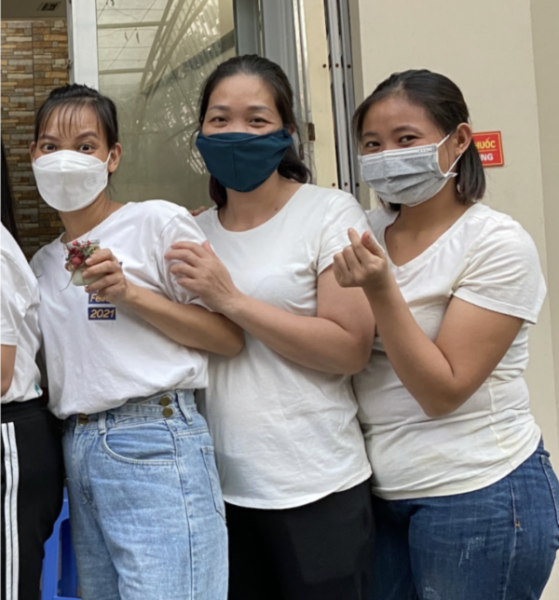As I ride the elevator to the seventh floor of the old Pfizer industrial building in Brooklyn, I have no idea what to expect. On their website, the Pratt Institute Brooklyn Fashion + Design Accelerator (BF+DA) is described as “a hub for ethical fashion and design that provides design entrepreneurs, creative technologists and industry professionals with the resources they need to transform their ideas into successful, triple bottom line businesses.” As a newbie to the fashion industry and someone trying to be a more conscientious consumer, I’m intrigued to say the least, and my visit to the BF+DA doesn’t disappoint.
On a seemingly ordinary Thursday morning the space is bustling with activity: Participants of the 2018 TEK TILES program are working on innovative approaches to adaptive clothing, an organic dye specialist is hosting a lunch & learn with the community about scaling natural dyes in apparel, and half a dozen emerging designers are busily working in their studios incorporating sustainable approaches into their work.
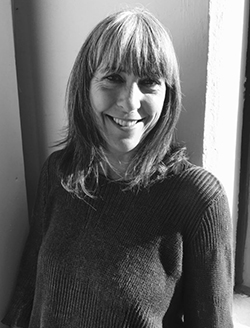
Amy DuFault
Meanwhile, Amy DuFault, communications director, sits down with me to talk more about the BF+DA and its collaboration with Free the Slaves on the Fashion for Freedom campaign. Here are a couple things I learned from our conversation.
When the BF+DA was established Deb Johnson had already founded the Pratt Design Incubator to help young designers with an eye on sustainability get their footing. During the first few years the incubator worked with over 30 designers, generated millions, and ensured the principles of sustainability were not overtaken by industry trends like fast fashion. But Deb Johnson wasn’t satisfied. She knew there was more work to be done around the intersection of fashion and sustainability. After months of conversation with friends, colleagues, and industry leaders who shared her values, the idea behind the BF+DA was born. Five years later, the BF+DA has developed a holistic approach to analyzing and innovating ethical fashion. From the design perspective, the organization supports designers who are thinking creatively about sustainability such as zero waste production, local manufacturing, and the use of organic dyes and textiles.
However, the BF+DA believes designers are only one piece of the puzzle. Through their consulting services, links to ethically produced lines, classes and community discussions, social media, and a blog, the organization offers expert guidance to those of us who are striving to become more conscious consumers. The group also partners with researchers on a variety of topics that impact the fashion industry with a particular interest in technology. “One of the things we’re doing this summer that I’m most excited about is the TEK-TILES program,” says DuFault. “The program’s focus this year is integrating technology, health and, of course, sustainability. A diverse group of participants met last week for a “design jam” to start thinking about their ideas. They’re getting ready to present their recommendations and I can’t wait to hear what they’ve come up with.”
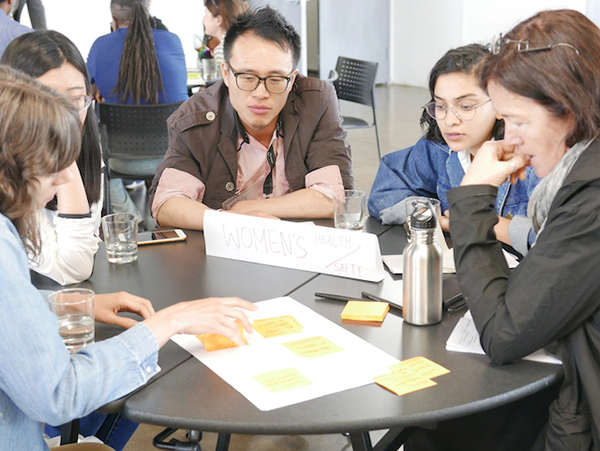
Being on the cutting edge of innovative and ethical fashion sounds like a dream job to many of us, but DuFault is quick to point out that with all the excitement comes great responsibility to shed light on the dark parts of the industry. “We believe sustainability includes fair treatment of workers throughout the supply chain,” DuFault explains. “When given the opportunity to participate on the advisory committee for the Free the Slaves Fashion for Freedom campaign, we didn’t hesitate. Like Free the Slaves, we want to help raise awareness about slavery in the fashion industry with the aim of eradicating it.”
Research by the International Labor Organization has shown that not only are there more people in slavery today than ever before, but many of those enslaved are making products in response to increasing demand because of trends in consumerism. More than half of the 40 million people in slavery today are trapped in forced labor, many in the garment and apparel industries. Free the Slaves in partnership with fashion industry change-makers like the BF+DA are determined to shift this dynamic.
Keeping with the BF+DA’s principles of sustainability and always thinking outside the box, when I asked DuFault if she had any tips for summer fashion, she said “look through your closest and reframe something you already have! Turn a dress into a romper or dye the multi-colored top that you haven’t worn for years to classic black through Make It Black. Become your own designer!”
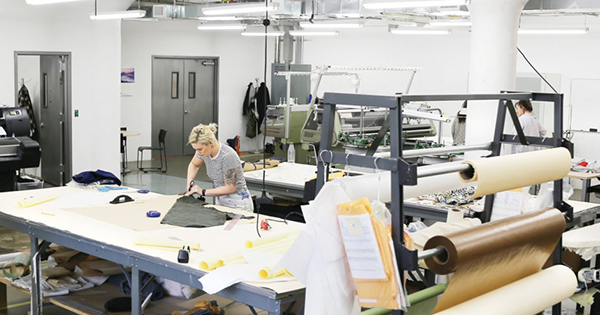
As I took the elevator back down to the lobby of the old Pfizer building after my interview with DuFault I thought about how inspired I felt. Not all of us are visionaries like Deb Johnson and the BF+DA team who see opportunity in places that the rest of us haven’t even thought about, but turns out we don’t have to be. Instead, the BF+DA offers a variety of tools around sustainable fashion so each of us can make our own small and unique contribution to this larger effort.
Rachel Karioki has worked on foreign policy and international development issues for more than a decade. She’s traveled to countless countries in Africa, Asia and South America to look at the intersection of poverty, governance and conflict. Working alongside community members, government officials and civil society, Rachel has helped identify opportunities to curb cyclical conflict by leveraging local resiliency. After seeing the geographic and socio-economic reach of the fashion industry, she has decided to learn more by pursuing a certificate at the Parsons School of Design in New York City, where she’s currently studying.

